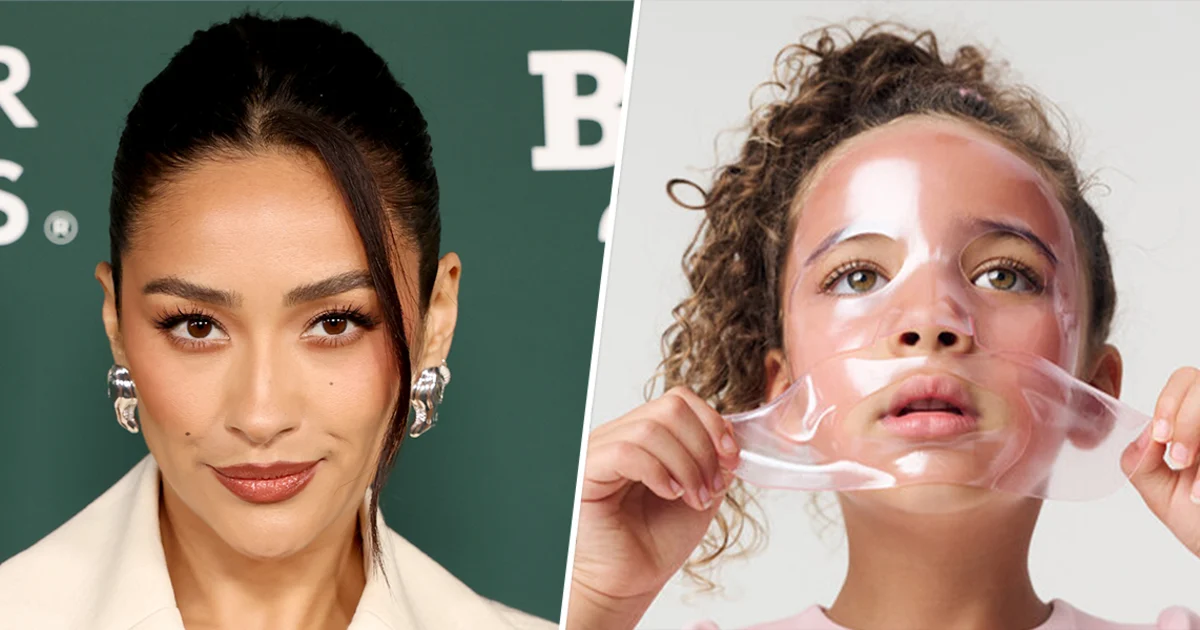Copyright TODAY

Shay Mitchell and Esther Song just launched a new skin care line for kids, sparking conversations about the necessity of the products for children. The duo launched their new brand, Rini, on Nov. 6. Rini’s launch consisted of "everyday" face masks in the shape of a puppy, unicorn or panda, a hydrating hydrogel facial mask and an after-sun hydrogel facial mask. The facial sheets contain ingredients like vitamin E, vitamin B12 and aloe vera. Mitchell and Song say the products are intended "to nurture healthy habits, spark confidence, and make thoughtfully crafted daily care essentials and play products accessible to every family." But the launch was met with some backlash online, with some claiming the products aren't needed for children's skin and project beauty standards onto kids. TODAY.com has reached out to representatives for Mitchell for comment. Dermatologist Dr. Fatima Fahs tells TODAY.com, "Kids don’t really need to be using any of these ingredients." Fahs, a board-certified dermatologist and founder of the practice Dermy Doc Institute, says kids' skin is typically balanced on its own and "not problematic." "If we’re already potentially pushing the agenda that kids' skin needs to be fixed, then we’re potentially highlighting imperfections for kids at a really young age. ... It’s kind of blurring the lines of self-care and promoting this idea that their skin is not already perfect," Fahs says. What Is Rini? Shay Mitchell first teased her new company Rini on Instagram Nov. 5 by posting a photo of a child using a face mask. The company formally launched the next day. "This has been three years in the making, inspired by my girls, their curiosity, and all the little moments that made me realize how early it starts. From birthday parties and face paint to wanting to do 'what mommy does' with her face masks… it was only a matter of time," Mitchell wrote on Instagram. Mitchell explained that she and her close friend and business partner Song specifically came up with the idea for the aloe vera recovery mask when they saw Song's daughter’s skin after a day in the sun. “I wanted something that worked, but was still clean enough for my kids and now it’s finally here,” Mitchell, who is a mom to 6-year-old Atlas and 3-year-old Rome, said. “Kids are naturally curious and instead of ignoring that, we can embrace it. With safe, gentle products parents can trust, and sweet moments that bring us closer.” On Rini's website, they added that they "created Rini because we wanted products that are gentle, trust-worthy, and inspire creativity." A press release for the launch said that the formulas were developed with pediatric chemists and labs in South Korea and the brand’s “proprietary formulas reflect the brand’s ‘rini promise’ of transparency, safety, and quality to redefine play for Little Faces with Big Imaginations.” Why Rini Has Sparked Some Backlash Before the company formally launched on Nov. 6, Rini — and the imagery of a young girl using a face mask — sparked controversy. "This feels beyond GRIM," one person commented on the Nov. 5 post. "I’m deeply disappointed. Why are we projecting beauty standards onto children now," another wrote. Other commenters expressed their concerns over the marketing of skin care toward young kids. "Their skin needs recovery from what?" one Instagram user said. "The only face product a child needs is sunscreen, this is wild!" another added. “I’m genuinely concerned by this. kids don’t need hydrogel masks or actives. their skin barrier is already healthy and still developing. this kind of ‘early skincare’ marketing really blurs the line between care and consumerism. do better," a third wrote. Representatives for Mitchell did not respond to TODAY.com's request for comment by the time of publication. Do Kids Need Skin Care Products? We Asked a Dermatologist Rini's website lists out the ingredients featured in the kids' skin care products. The after-sun face mask includes aloe vera and chamomile; the hydrating mask is made with vitamin B12, glycerin and red algae extract; and the "everyday" mask features vitamin E, white tremella mushroom and beta-glucan. Fahs says kids' skin "needs very basic things.” Children’s skin barriers are “already very healthy and resilient," she adds. Aloe vera is a calming ingredient that can be used after sun exposure, she says. Vitamin E is an antioxidant that helps support the skin barrier, though she says it's not needed topically. Similarly, Fahs says that vitamin B12 is “not necessarily proven to have any topical benefits on the skin.” “It can reduce inflammation overall, but most kids are getting vitamin B12 in their normal diet, so it’s not something that necessarily needs to be applied on the skin,” Fahs says. Rini was "created for growing faces ... to hydrate, soothe and recover" and is intended for kids ages 3 and up, according to the brand's product pages. Fahs advises parents to consider introducing a skin care routine once their kids start to show signs of puberty in their pre-teen years. At this stage, children might notice an increase in oiliness in their skin, or “little bumps on the skin toward the end of the day.” Generally, this change can occur between the ages of 8 and 13, with 8 being on the earlier side, Fahs says. “Introducing a gentle cleanser, a gentle moisturizer and a broad-spectrum SPF 30 sunscreen is a great routine to encourage,” Fahs says. “If I see patients in the office starting to have these changes, the very first thing I’ll try to get them into the habit of doing is just washing their face with a gentle cleanser daily. Sometimes that’s all they need.” Overall, Fahs says she is seeing more marketing geared toward children, “whether that’s intentional or not,” and is seeing children come into her clinic “with more reactive skin barriers now or with problems they didn’t have before starting a routine.” “Although I’m all for healthy routines and habit building, especially in children, this almost takes it to the next level where it becomes harmful,” she says. Fahs says that children's skin “isn’t just like a smaller version of adult skin.” Rather, it is already “naturally balanced.” “Children don’t need these seven step routines, or these complicated products,” Fahs says. “If you’re really looking to do some healthy habit building for your kids, the number one thing should just be encouraging them to wear a daily sunscreen before going outside to play.” She adds, “A lot of this is being disguised in this idea of self-care, but I find that self-care for children is encouraging them to go outside and play or be with their friends, and it’s not standing in front of the mirror or putting on a sheet mask.”



